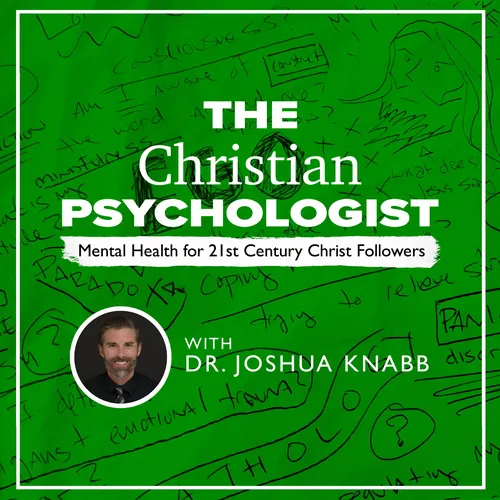Episode 3: Mind Wandering
- Author
- Joshua Knabb
- Published
- Thu 15 Sep 2022
- Episode Link
- https://the-christian-psychologist-mental-health-for-21st-century-c.simplecast.com/episodes/episode-3-mind-wandering-JKhpp12a
References
Beeke, J., & Jones, M. (2012). A Puritan theology: Doctrine for life. Reformation Heritage Books
Giannandrea, A., Simione, L., & Pescatori, B. (2019). Effects of the mindfulness-based stress reduction program on mind wandering and dispositional mindfulness facets. Mindfulness, 10, 185–195.
Hall, J. (2016). The art of divine meditation. Titus Books.
Killingsworth, M., & Gilbert, D. (2010). A wandering mind is an unhappy mind. Science, 330, 932.
Knabb, J. (2018). Returning to our biblical roots: Christian meditation as a psychological response to mind wandering. CounselEd, 1-6.
Knabb, J. (2021). Christian meditation: A four-step model and workbook for therapists and clients. InterVarsity Press.
Mooneyham, B., & Schooler, J. (2013). The costs and benefits of mind-wandering: A review. Canadian Journal of Experimental Psychology, 67, 11-18.
Salavera C., & Usán P. (2020). The mediating role of affects between mind-wandering and happiness. Sustainability, 12, 5139.
Strong, J. (2001). The new Strong’s expanded dictionary of the words in the Hebrew Bible.
Thomas Nelson.
Watson, T. (2014). A treatise concerning meditation. CreateSpace Independent Publishing Platform.
White, T. (2013). Instructions for the art of divine meditation. Puritan Publications.
Zedelius, C., & Schooler, J. (2018). How different types of mind-wandering affect cognition and behavior. In K. Fox & K. Christoff (Eds.), The Oxford handbook of spontaneous thought: Mid-wandering, creativity, and dreaming (pp. 233- 247). Oxford University Press.
